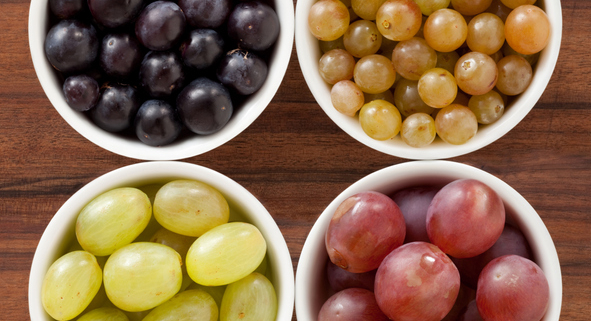The Dangers of Raisins and Grapes for Dogs
While many dog owners are aware of certain foods toxic to their pets,
like chocolate and onions, another potentially hazardous item that
might surprise some is raisins and grapes. These small, seemingly
harmless fruits can pose significant health risks to dogs when
consumed. Here’s why raisins and grapes are dangerous and what you
should know to protect your furry friend:
Unknown Toxic Compound: The exact toxic compound in raisins and grapes
is not yet identified, and the reason why some dogs can consume them
without adverse effects while others suffer severe reactions remains a
mystery. This unpredictability makes it challenging to determine which
dogs might be more susceptible.
Wide Variability in Sensitivity: Dogs’ sensitivity to raisins and
grapes can vary widely. Some dogs may ingest a small amount without
showing any immediate signs of illness, while others can develop
life-threatening symptoms from consuming even a single grape or
raisin.
Potential for Kidney Failure: One of the most concerning dangers
associated with raisin and grape ingestion is the risk of kidney
failure. Affected dogs may exhibit symptoms such as vomiting,
diarrhea, abdominal pain, loss of appetite, and lethargy. Without
prompt treatment, kidney failure can lead to severe and often
irreversible damage.
No Safe Amount: Unlike some toxic foods where the severity of the
reaction depends on the amount consumed, there appears to be no “safe”
threshold for raisins and grapes. Even small quantities can be
harmful, and it’s difficult to predict which dogs will be affected.
Variety of Products: Raisins and grapes can be found in various forms,
including in cereals, trail mixes, baked goods, and as standalone
snacks. Dogs may accidentally ingest them if these foods are left
within their reach.
Delayed Onset of Symptoms: In some cases, symptoms of raisin or grape
toxicity may not manifest until several hours after ingestion, making
it challenging for pet owners to connect the symptoms to the ingested
food.
Preventive Measures: To protect your dog, it’s best to avoid giving
them raisins or grapes altogether. Be mindful of foods containing
these ingredients and keep them out of your dog’s reach. Also, be
cautious when sharing human snacks, as dogs can quickly snatch any
food they find appealing.
Prompt Veterinary Care: If you suspect your dog has consumed raisins
or grapes, seek immediate veterinary attention, even if they are not
displaying symptoms. Early intervention can be critical in preventing
kidney damage and improving the chances of a positive outcome.
In conclusion, raisins and grapes are potential dangers to dogs, and
the toxic mechanism behind their effects remains uncertain. To ensure
your dog’s safety, it’s best to err on the side of caution and avoid
giving your pet these fruits altogether. If accidental ingestion
occurs or is suspected, contact your veterinarian promptly to assess
the situation and initiate appropriate treatment measures. Remember
that swift action can make a significant difference in your dog’s
health and well-being.



